IN PHOTOS: Five lesser known facts about Mumbai`s Minara Masjid
Updated On: 08 April, 2024 05:01 PM IST | Editor
The central floor conceals the tombs of two significant Sufi saints: Abdullah Shah Maudi Rehmatullah Alaih and Syed Muzaffar Shah Maudi Rehmatullah Alaih. Their ancestors migrated from the Arab region to India in the 19th century
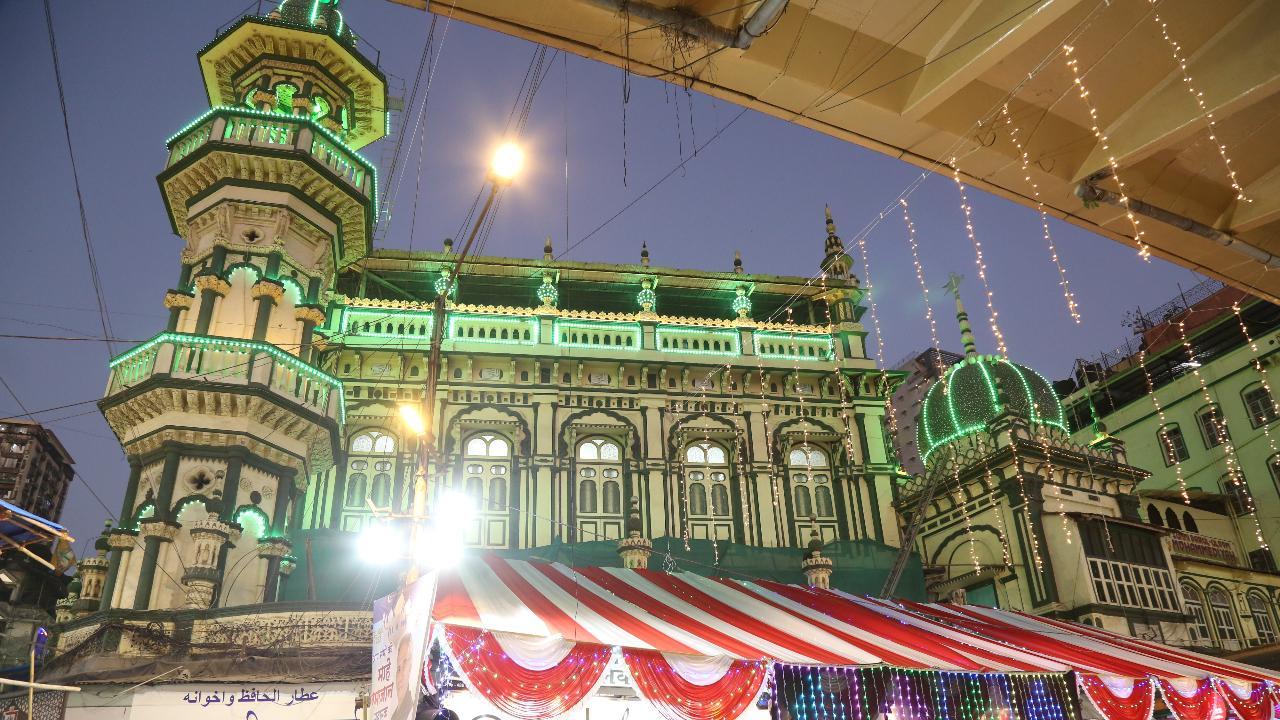
1/7
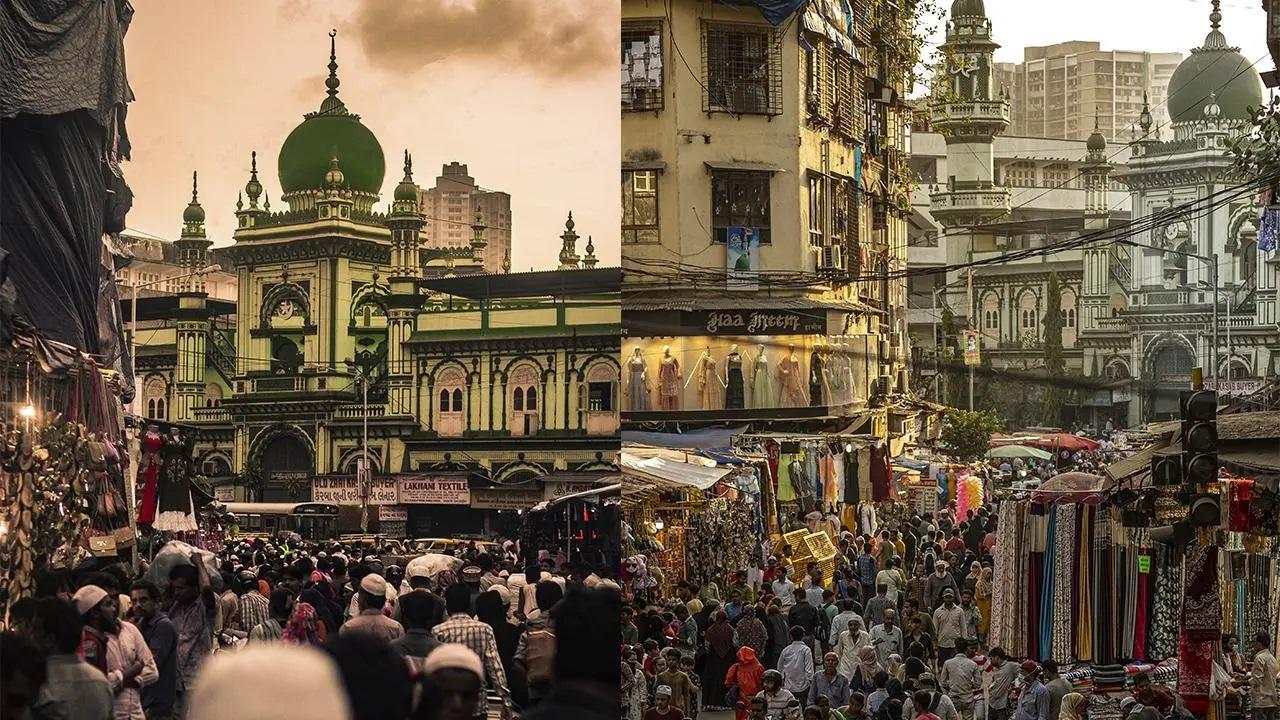
2/7
Back then, Arabs regularly descended upon Bombay Island for trade and business ventures. Consequently, there arose a need for a facility where they could offer namaz and find a stable dwelling. Thus, Minara Masjid was established as a refuge for Muslim migrants (in the then-known) Bombay during the 1800s. Image courtesy: Vishesh Kanani
ADVERTISEMENT
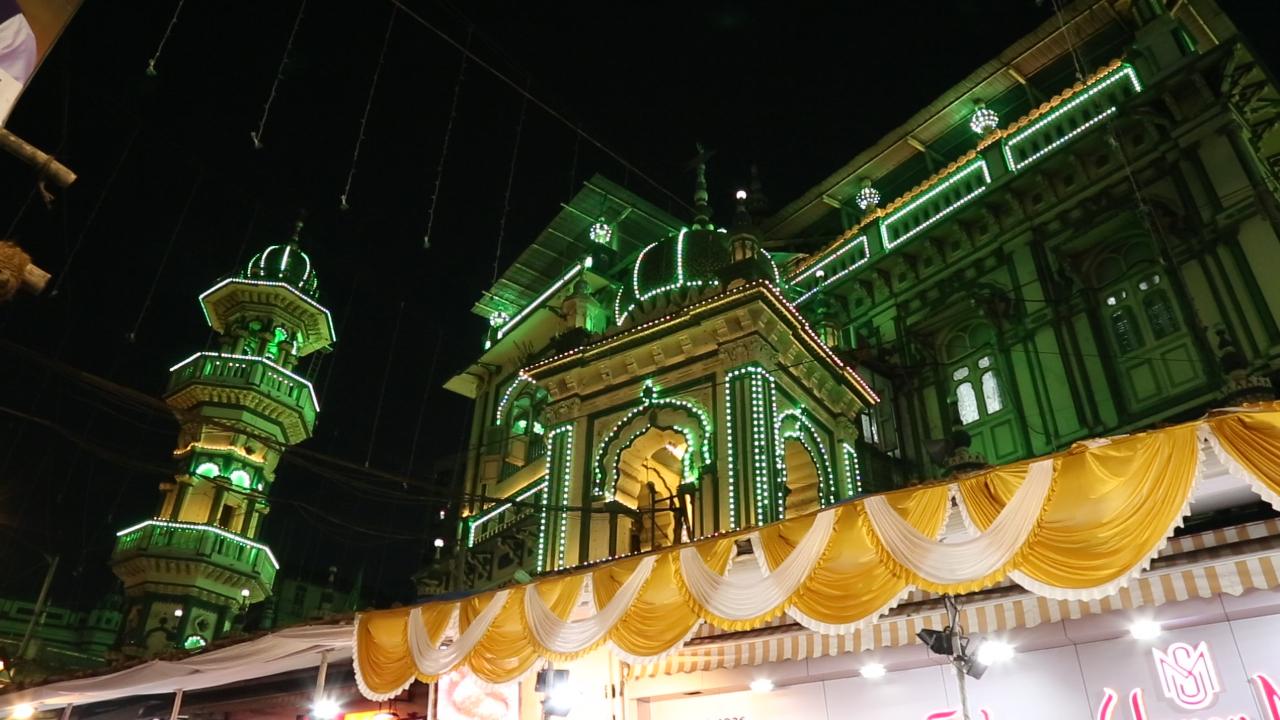
3/7
Nearly 1200 to 1400 people break their fast at the mosque during Ramadan. “One notable aspect is our in-house kitchen facility. All food preparations are conducted on-site, except food procurement. Fruits are sourced from Vashi, where we secure them in bulk at competitive prices, ensuring ample stock and cost-effectiveness,” informs Javed Parekh, trustee of Minara Masjid. Image courtesy: Manjeet Singh Thakur
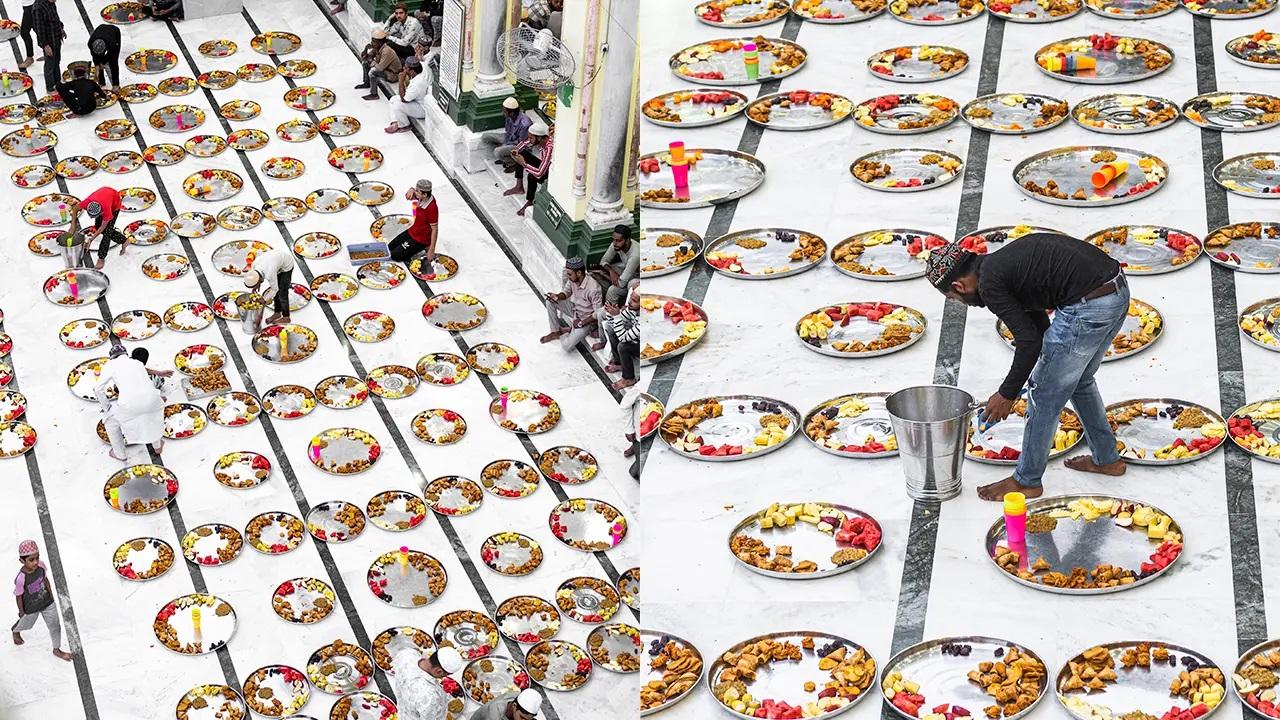
4/7
Fresh fruit stocks are replenished weekly to maintain a consistent supply for the visitors of the mosque. Furthermore, all food items, including bajiyas, samosas, minced meat and cutlets, are crafted in the ‘bawarcha khana,’ within the confines of the mosque. Image courtesy: Vishesh Kanani
ADVERTISEMENT
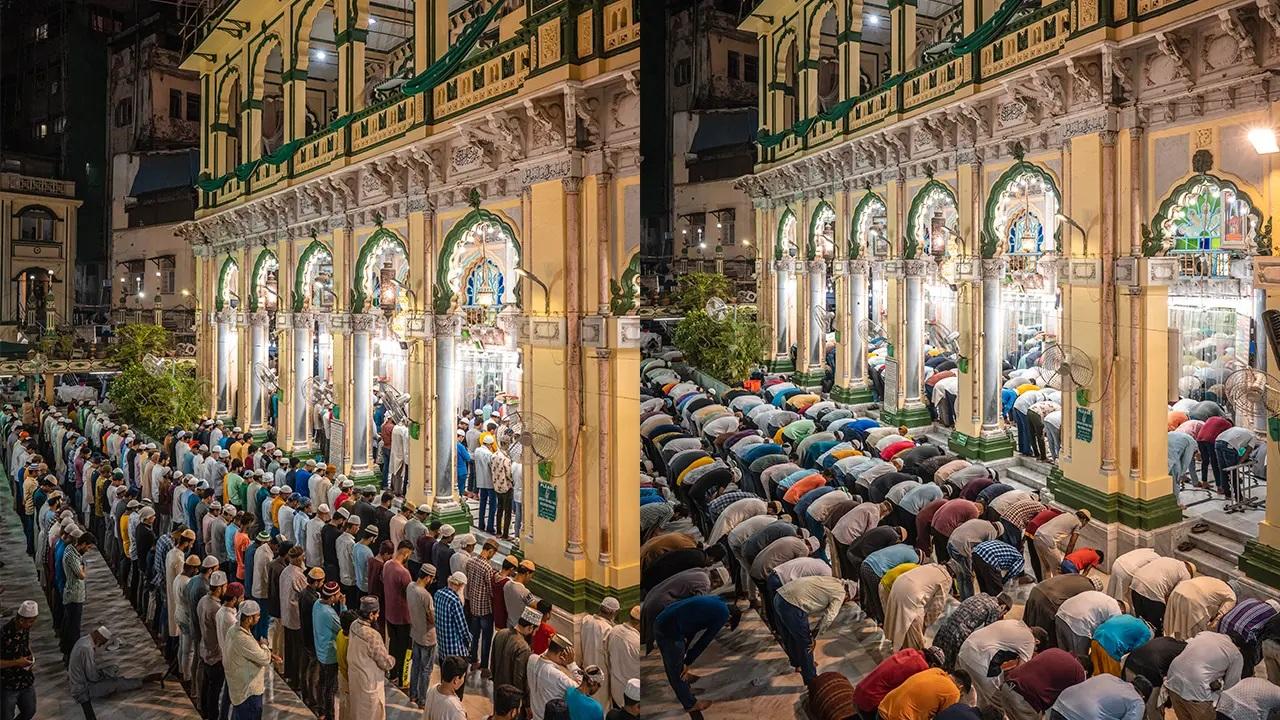
5/7
After breaking the fast, a team of nine people promptly engage in a 5-minute cleaning session before the Maghrib prayers commences. Meanwhile, people head to the chashma or water spring to perform Wuzu or ablution which refers to a ceremonial act of washing parts of the body. Image Courtesy: Vishesh Kanani
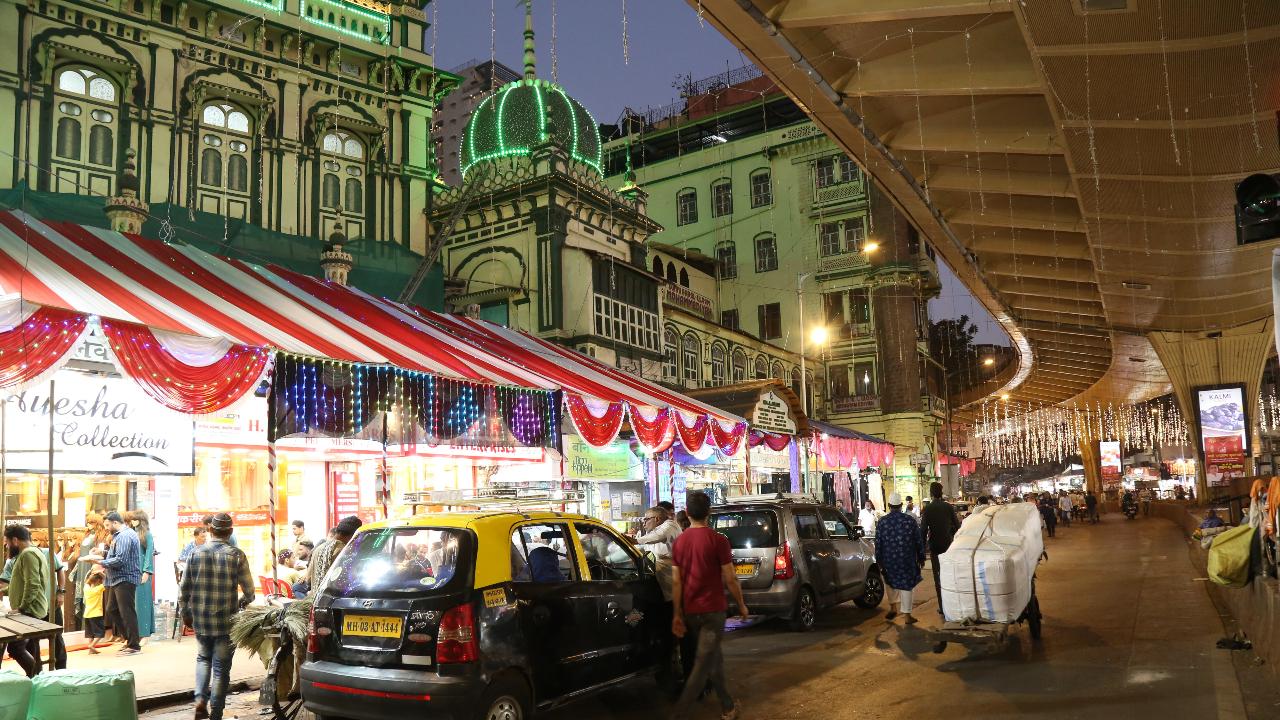
6/7
During the night, approximately 300 to 350 people gather daily for Sehri, which is arranged at 3 o`clock. The Sehri includes a variety of offerings, such as keema, non-vegetarian dishes, gravy, bread butter, toast and jam, ensuring a nutritious meal for all attendees. Image courtesy: Manjeet Singh Thakur
ADVERTISEMENT
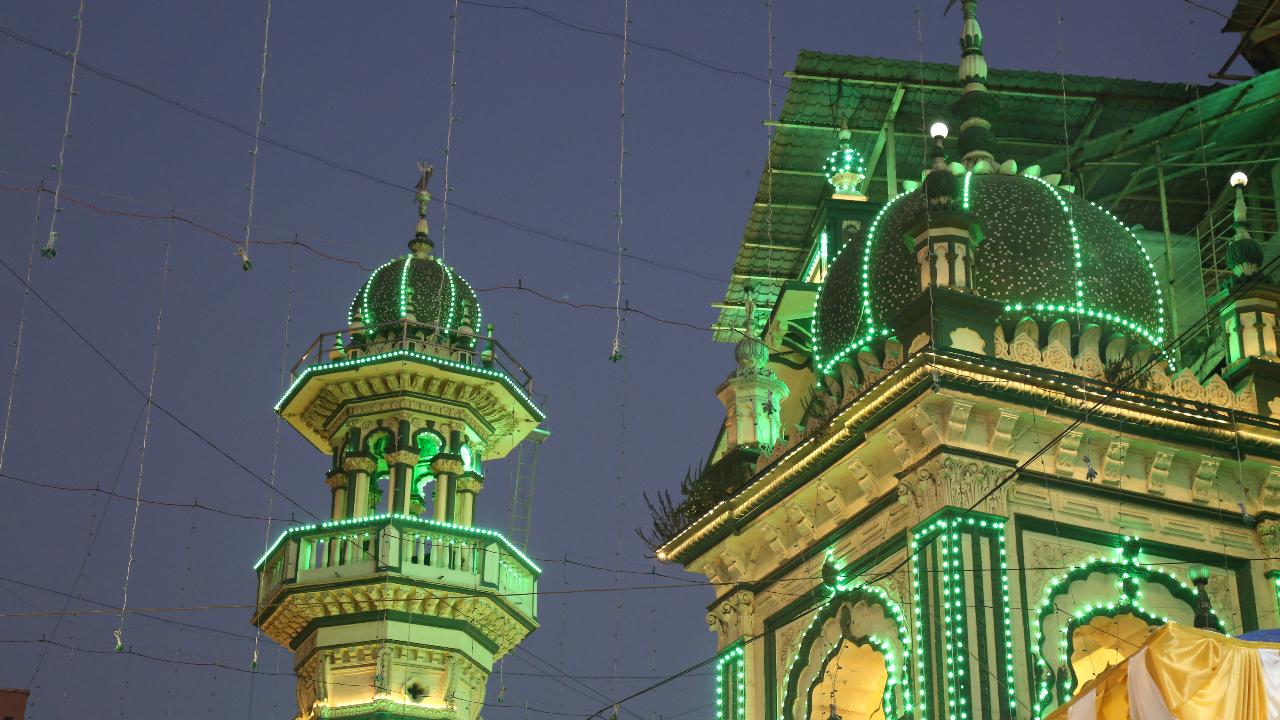
7/7
The mosque also houses a library on the first floor which is managed privately by the Islamic seminary Darul Uloom. Moreover, within the mosque premises, an orphanage for boys provides a space for learning and reading. Image courtesy: Manjeet Singh Thakur



